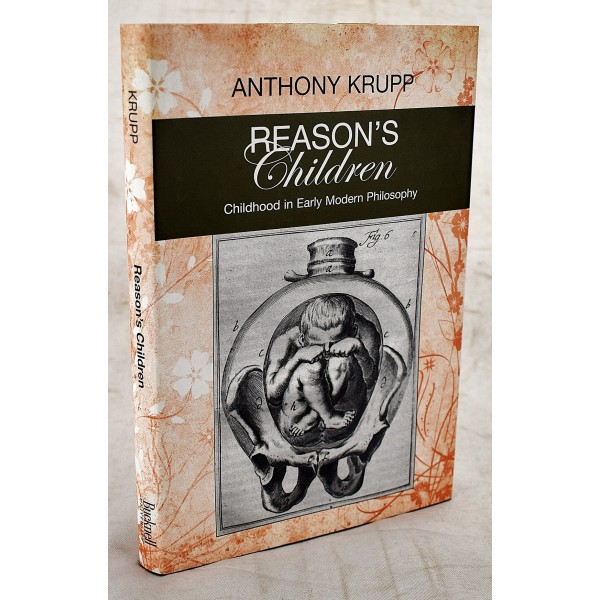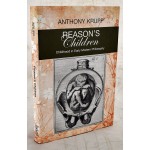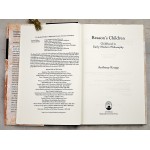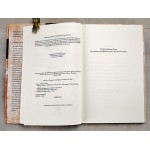Reason's Children: Childhood in Early Modern Philosophy (Bucknell Studies in Eighteenth-Century Literature and Culture)
Reason's Children: Childhood in Early Modern Philosophy (Bucknell Studies in Eighteenth-Century Literature and Culture)
Krupp, Anthony
Bucknell Univ Pr, 2009
Hardcover and dust jacket. Good binding and cover. Minor shelf wear. Clean, unmarked pages. 261 pages ; 24 cm. Contents: Introduction; Descartes : purging the mind of childish ways; Locke and Leibniz : understanding children; Locke : children's language and the fate of changelings; Leibniz : against infant damnation; Wolff : the inferiority of childhood; Baumgarten : childhood and the analogue of reason.
"We still know little of childhood in early modern European thought. By reconstructing philosophies of childhood in the works of rationalists not known to have reflected upon children, Reason's Children expands our understanding of philosophical reflection on childhood in early modern Europe. Central aspects of early modern philosophical systems Descartes's prejudice and method, Leibniz's divine justice, Wolff's rationality, Baumgarten's aesthetic cognition - are reexamined in light of the peripheral status of childhood in their works. Furthermore, Krupp carefully examines the various children of Locke's Essay, most of whom have been neglected in histories of childhood. Beyond illustrating the blank slate thesis, Locke's children play other significant roles as well: as not-yet persons, as deficient speakers, and as changelings. The absence of Locke's actual statements concerning children from the intellectual history of childhood is a wrong that here finds some redress." "This erudite and valuable work of scholarship examines concepts of childhood in European thought between 1630-1750 and aims to bring the topic of childhood to the attention of historians of philosophy while also contributing, historically and philosophically, to the newly burgeoning field of Childhood Studies."



